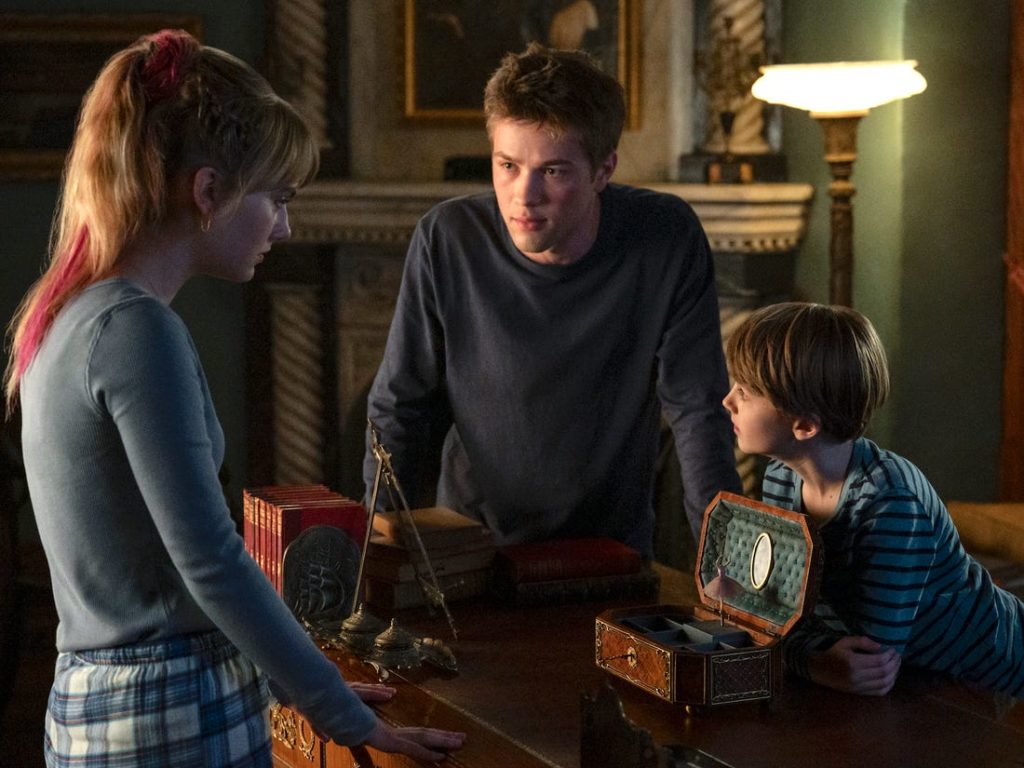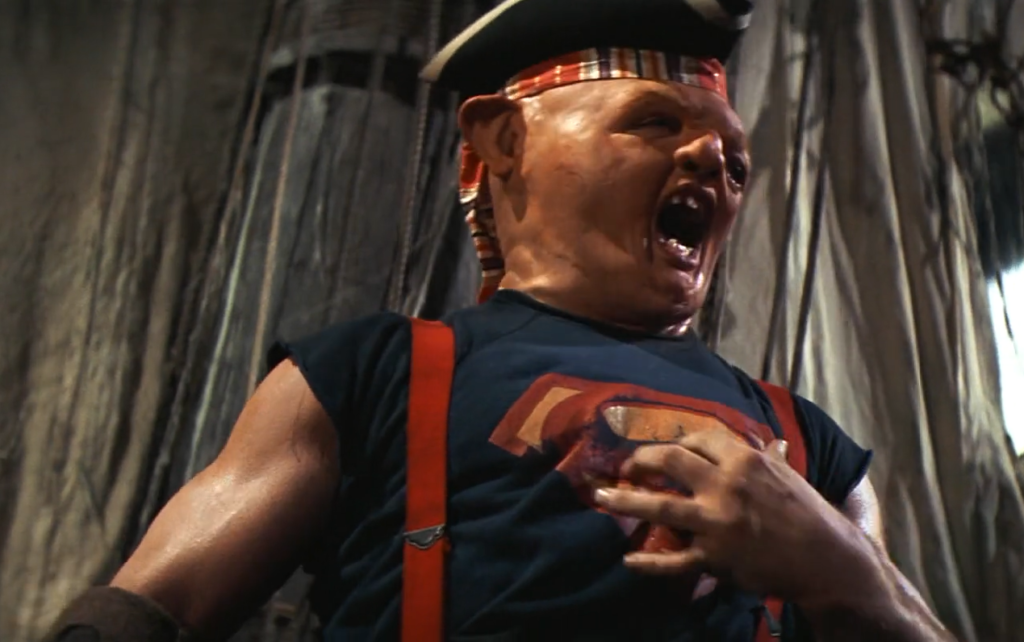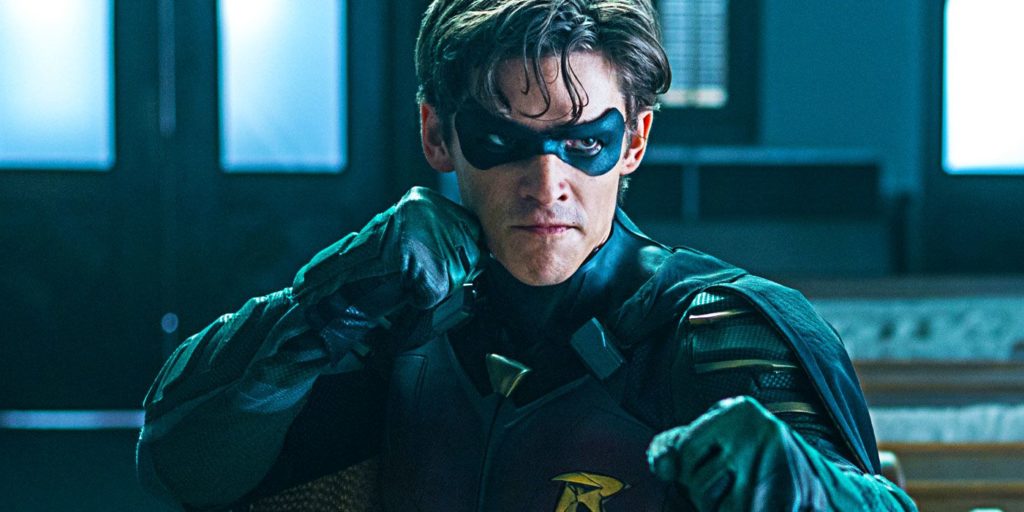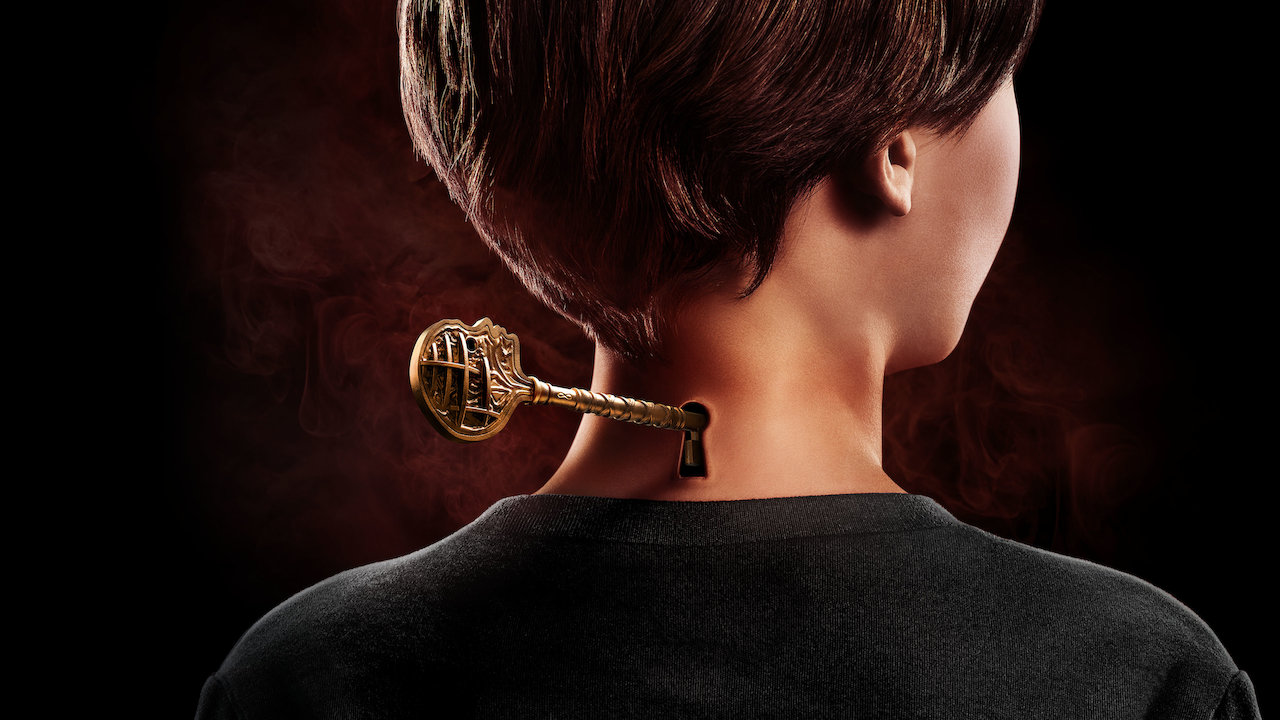The Heroes

Image: Netflix
Stranger Things cleverly found a way to appeal to multiple age groups by having three distinct sets of protagonists. We have the pre-teens through the D&D party and Eleven; the teens via Nancy, Jonathan, and Steve (although Steve ends up spending most of his time with the kids, like Brandon from Goonies or Rudy, the cooler older kid from Monster Squad); and actual effective adult plotlines thanks to Winona Ryder’s Joyce and David Harbour’s drunk Sheriff Hopper. Goonies, Labyrinth, and Monster Squad did not have adults that made a positive impact, unless they were adults nobody took seriously, like an old German immigrant or Sloth.

Image: Warner Bros.
Locke and Key does the same thing in a smaller scale, with one kid protagonist in Bode, two teens in Tyler and Kinsey, and one adult in Nina, who like Winona Ryder is top-billed but is kind of clearly not the main character. They each have their struggles that form compelling arcs.
Tyler tries to hide it, but he hates himself for what he thinks is his role in his father’s death, and that gives him a strong streak of self-destruction. He tries to be a better person than the douchebag hockey jocks who are swift to embrace him as a bro, but as long as that guilt is weighing on him, he can’t let himself have something good.
Kinsey is haunted by PTSD from the day that Tyler’s classmate brought a gun to their house, for reasons none of them were prepared for, and that are revealed as we go. Fear has come to define her life, standing between her and anything she might want. She is constantly haunted by her choice to stay still and silent rather than act, and making friends with horror enthusiasts is not helping. And when she learns about the keys… one of them gives her a chance to live free of that fear, but not in the healthiest way.
Kinsey is played by Emilia Jones, who I know as the young Queen of Years from the Doctor Who episode “Rings of Akhaten,” in which she provided musical accompaniment to one of Matt Smith’s all-time best speeches, and she’s a late-stage teen now, and I do not care for that at all, because I do not like being reminded that “Rings of Akhaten” was more than a couple of years ago.
Yes obviously I know that there have been two entire regenerations since then, of course she isn’t 11 anymore, doesn’t mean I like being reminded.
Where was I. Right, Bode. Bode is actually the first of the siblings to discover the keys, and to go up against Dodge/Echo, the evil well-woman (yes, I know that naming her both “Dodge” and “Echo” means that the Big Bad is named after a mid-range diesel truck, what do you want me to do about it), and the sibling most capable of staying on freaking task about the menace she provides. As such Bode does not at all care for his siblings hiding various revelations for him for his protection, since he’s been the point man on this situation since day one, you jags. (Not his exact words but I think I captured the sentiment.)
Unfortunately for Bode, he does not meet a small gang of fellow misfits and outcasts, a club of losers or goons or D&D enthusiasts to join him in resisting Dodge and her frankly vicious schemes against his family and maybe the world. No, that plotline goes to Kinsey, and the horror enthusiasts she befriends known as the Savini Squad, and the Savinis do not have the Losers’ Club’s solidarity. No, all Bode gets for an ally is Rufus, the young, neurodiverse groundskeeper of Key House, whose adoptive mother was one of Rendell Locke’s best pals in high school, make a note of that because it probably will be important later in the season.
And while all of this is happening, Nina is just trying to cope with the trauma of her husband’s violent death while providing a new, stable life for her kids in a spooky house where weird things and home invasions keep happening that she cannot explain or understand, because most adults can’t remember that magic is real if it isn’t happening right in front of them. In perhaps the hardest time of her adult life, she is being constantly gaslit by the mundanity of adult life. This does not make it easy to maintain her six years of sobriety.
So the protagonists’ plots all work, even if…sometimes because… everyone makes questionable choices along the way. Bode’s taking the lead on the A-plot; Nina is arms-length from what’s happening with her kids but has her own investigation into her husband’s past going on; and the best is probably Kinsey’s attempts to live a life without her crippling fear and the consequences thereof. Tyler became frustrating when he picked the worst possible moment to backslide into drunken fits of self-loathing and self-destruction, but then he bounced back.
And here it had a distinct similarity to Titans, thanks to this jabroni.

Image: Netflix
Both feature a fairly rich ensemble, but in the centre is one brooding pretty boy who everyone needs to stop sulking around the joint and work with them against their very daunting nemesis. Both Kinsey and Rachel/Raven are dealing with magical abilities they struggle to use responsibly, and the one person they can turn to has a habit of saying “I can’t deal with this” and wandering off.
It was more frustrating with Titans’ Dick Grayson, because after a full season of brooding over how he hated being Robin and hated his violent upbringing, all as a smokescreen for his self-loathing over letting his parents’ killer be gunned down in the street, he finally put it all behind him. In a kind of sweet scene with Bruce Wayne (played mostly effectively but in a weird Brooklyn accent by Game of Thrones’ Iain Glen), he found peace with his life so far, and a purpose moving forward.
And then all of that fell apart as we were swiftly introduced to a new sin from Dick’s past as Robin that he got to spend two-thirds of this season brooding about. I want to like you, Dick, but you make it so taxing* sometimes.
(*I didn’t say “hard” on purpose, thank you.)
But where our magical kids’ stories really intersect is in the villains.
Next Page: That Thing I Just Said

